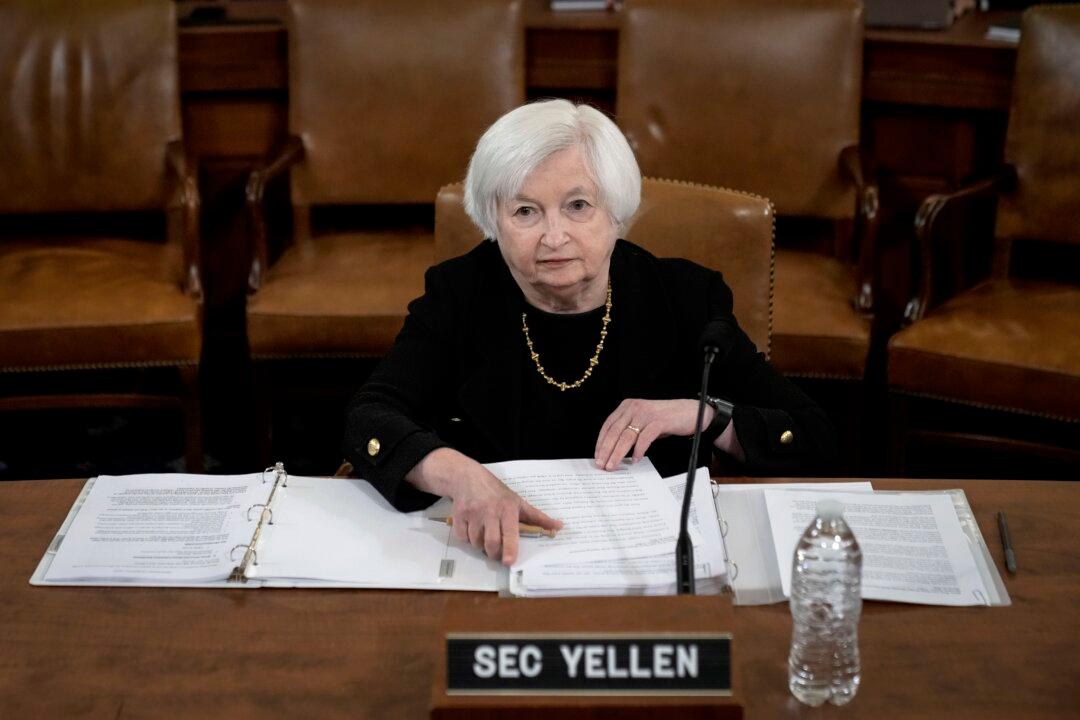The United States needs to have a greater leadership role in the International Monetary Fund (IMF) and other international financial institutions to support impoverished countries and limit China’s influence, according to Treasury Secretary Janet Yellen.
Yellen appeared before the House Financial Services Committee, defending a proposal to bolster the government’s participation in the IMF’s New Arrangements to Borrow program to ensure financial support for the organization’s resources. Yellen also requested authorization to extend financing to the IMF’s two critical trust funds—the Poverty Reduction and Growth Trust and the Resilience and Sustainability Trust—and bolster U.S. involvement in the African Development Fund and the International Development Bank.





